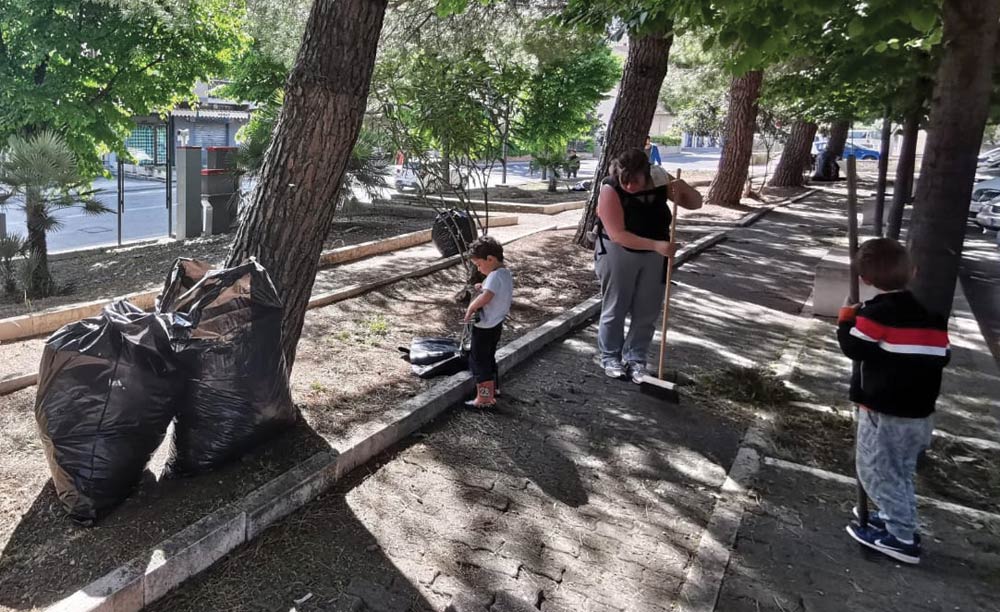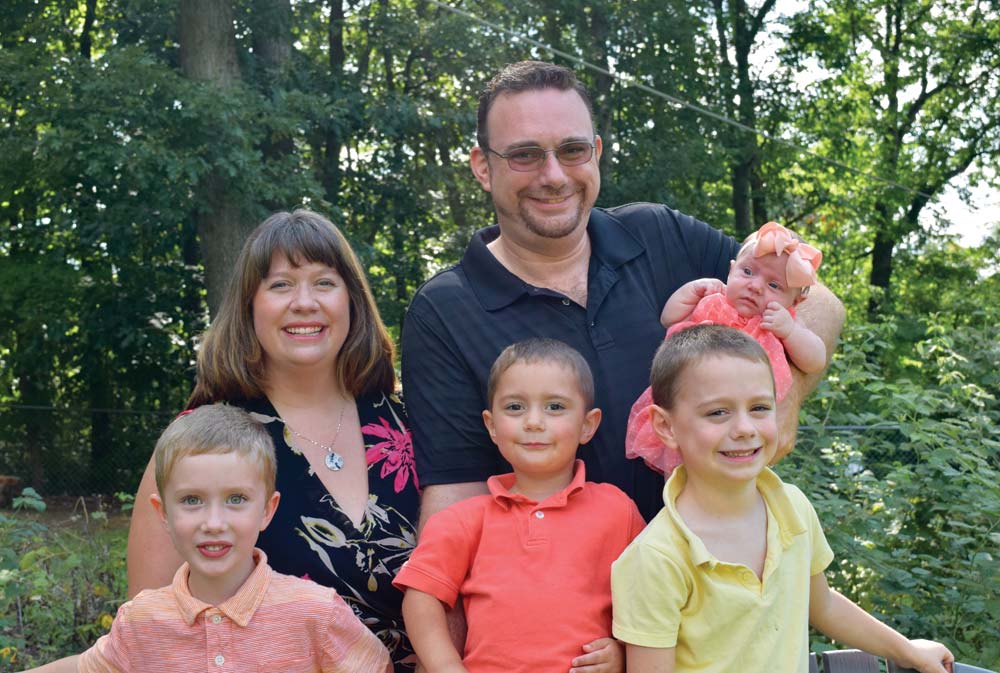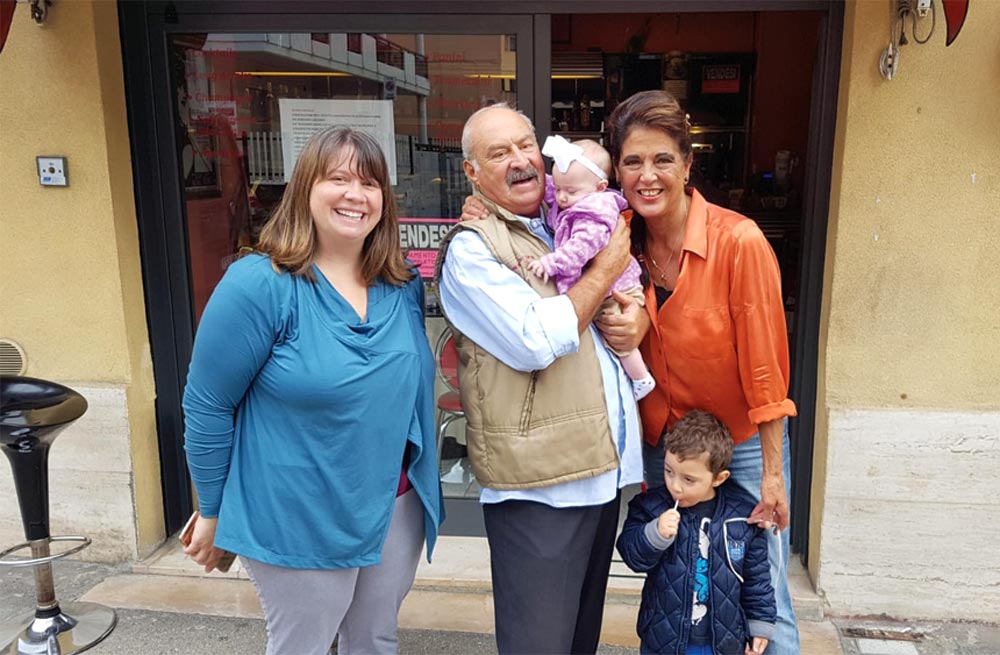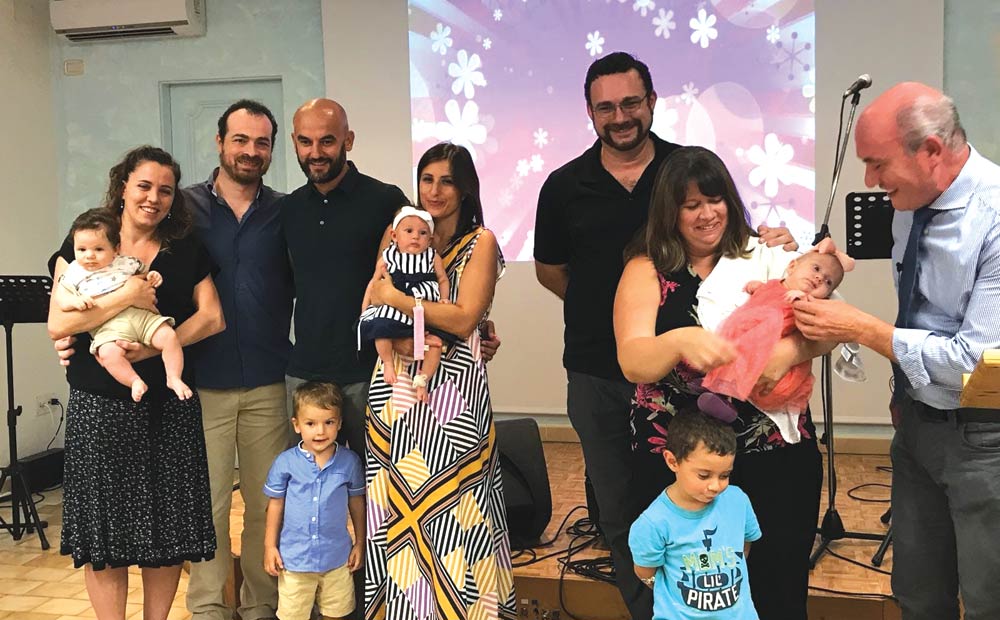Not here to raise a family?
Shawn Green sees godly parenting as an integral part of bearing witness to the gospel in Termoli, Italy.
By Shawn Green

The Green family works to clean the green area that the church has adopted in Vasto, “showing actions to go with what we preach.” Photo courtesy of Shawn Green
I am frequently told that raising a family is not the reason we are here as missionaries. While in some respects this is true, Laura and I have chosen to consider our family life as a part of our missional call.
When I think of ministry, two aspects in the scriptures have always stuck out to me in particular: Jesus’ approach to people and the meeting of their needs (even if they didn’t really know what they needed), and God’s response to Moses, “What are you holding in your hand?” We looked at the culture and asked ourselves, “How can we serve these people? What are the needs that we see around us? What do we have that can be an influence and a witness to them?”
What we saw was a culture saturated by religious beliefs, religious rules, religious tradition and religious solutions. If I would compare it to anything, I would say that it is similar to what Jesus found in Israel—many needs and all the wrong answers.

The Green family: Laura and Shawn with children (from left) Emmanuel, Lucas, Matteo, and Isabella, have served in Italy since 2014. Their work in the Vasto area involves many neighborhood interactions through hospitality and example. Photo courtesy of Shawn Green
Our job has been to search for any and every inroad to those that surround us, natural ways to relate and to build relationships. This is especially important since our current visa doesn’t allow us to hold outside jobs as a way of relating to locals. We asked ourselves, “What gifts, abilities, and talents do we have to offer? What are the fishes and loaves we have in our possession?” What we discovered was that we were able to build relationships in our neighborhood through daily family interactions, and through hospitality.
Our neighborhood has a number of families with children around the age of ours. Together they ride bikes around the street and play in our yard, which is one of the few available in the neighborhood. We have natural connections with many of the parents; we have opportunities to share the gospel—through direct interaction, but also through what they observe in our children’s behavior—not that they are always angels!
There was the time that our children took flowers and an apologetic note to a neighbor after they had joined their friends in throwing fallen fruits against their wall. Our neighbors have watched us insist that our children ask their playmates to forgive them after they have spoken hurtful words.
Thus, neighbors notice and ask questions. These are opportunities to demonstrate that as believers we approach life issues in a different fashion. Beyond this, the upbringing of our children—the transforming grace of Christ in their lives —gives compelling evidence to our local friends of God’s transforming power. This is something that no amount of talk about the gospel or teaching of biblical truth can convey.

Laura Green (left) has developed a friendship with neighbors Michele and Maria, sharing the love of Jesus with them. Photo courtesy of Shawn Green
We understand that children are key to the moral fabric of future generations. We want to set an example of providing consistent direction and training for our children, realizing that if left to themselves, as Italian society dictates, these children who play with our children will grow up in a world that is void of most moral guidelines, and most unfortunately, of the truth of the gospel.
Because teachers as well as neighbors notice our parenting, we have had opportunities to speak into their lives. We have also been invited to share other gifts through music programs. Classmates’ parents become contacts with whom we are able to build relationships, talk about our beliefs and share the gospel.
Here the concepts of family and the raising of children differ greatly from most North American styles of child-rearing. For example, in Italian culture, the Philippians 2:4 attitude of “looking to the interests of others,” applies only in the setting of family. Far more prevalent is the assumption that if it does not benefit me then it is not worth doing and furthermore, if it does benefit me—even if it may harm someone else—then it is acceptable.
Fellow believers in the church also observe a style of upbringing that is in tune with biblical standards. I still remember the confusion on the faces of our hosts when our oldest attempted to help clear the table, an activity that in most families is only done by the ladies. His behavior demonstrated the kind of readiness to serve that needs to be developed in many believers here, since it is so culturally unfamiliar.

Isabella Green (held by Laura at right) is dedicated to the Lord by Giovanni Greco, along with the children of other young families in the Vasto church. Photo courtesy of Shawn Green
But greater than the enlarged circle of influence that our family life gives us, is the reality of our call as parents (and most specifically, fathers) to raise and be responsible for our children. This is evident in Timothy and in Titus—Scriptures concerning the qualifications of elders and leaders in the church. If we are negligent in our duties as parents, how can we expect to receive a greater responsibility? How can we expect to be faithful in those tasks? How can we expect our performance in leadership to bring glory to God if we are not following something scripture has instructed us to do at home?
Our purpose as believers and disciples of Christ is to bring glory to God in all that we do. We do this by obeying the commandments and instructions that we find within God’s word.
This is sufficient for me to say that part of our mission, our purpose, our mandate as believers, is the raising of our children and the faithful nurturing of faith within our families. Family and mission cannot be separated.
Shawn Green serves with his wife Laura and their four children in Termoli, Italy, and neighboring communities.
